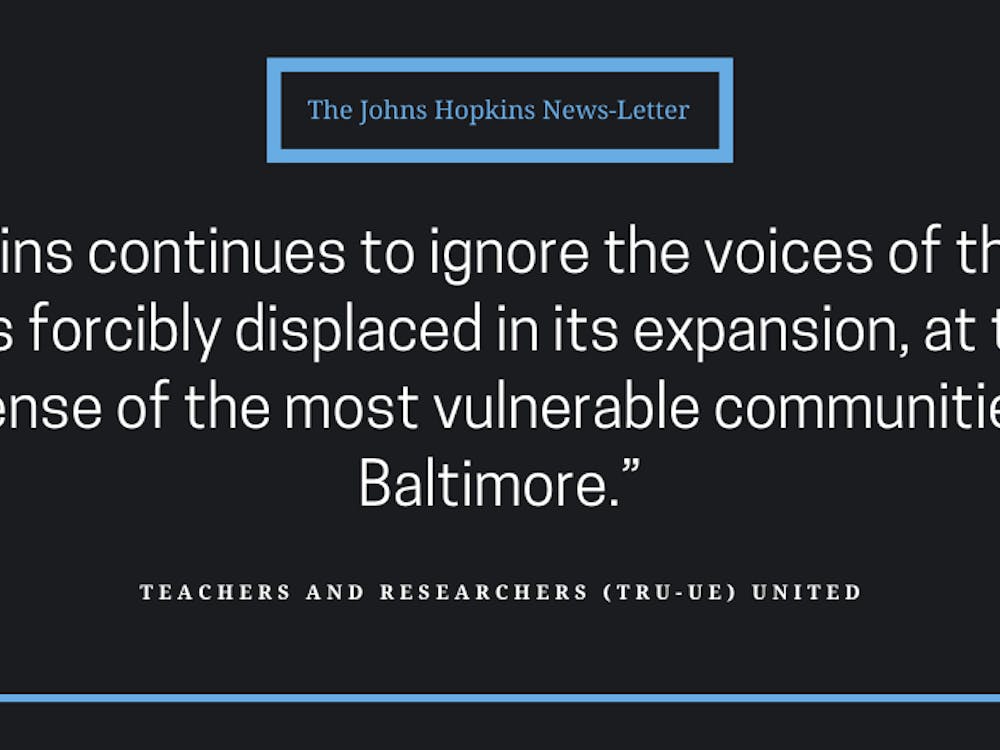In recent months, several Hopkins entities have made efforts to improve sexual awareness on campus and in the greater Baltimore community. These efforts include the possibility of greater condom availability around campus, initiatives at the Student Health and Wellness Center and free educational and testing services provided by Hopkins professors and graduate students.
The Student Government Association (SGA) has spearheaded many of the initiatives that, if enacted, would most directly impact Homewood. The Student Services Committee of SGA is currently pushing to make free condoms available in the residence halls; meanwhile, the Safety, Sustainability, and Development Committee is trying to improve condom availability around campus, targeting the more heavily trafficked terminals — namely, the Milton S. Eisenhower Library.
This idea, suggested by a student at the recent SGA Town Hall meeting, would see the creation of condom dispensers in locations such as the library restrooms.
“Our goal is to make it easier for students to make sure they’re protected if they decide to have sex,” the Chair of the Safety, Sustainability and Development Committee sophomore Rodolfo Finocchi said. “These efforts are pretty similar to those at other campuses. I’d say that Hopkins is somewhat behind the curve in regards to condom availability.”
On the whole, the topic of sexual awareness is absent from the public forum at Hopkins. With the exception of Sexcapades during freshman orientation and sporadic lectures by a visiting “sexpert,” the issue remains by and large undiscussed.
Several students responded positively to the recent initiatives.
“Having them at HelWel now is awkward because you have to go in and grab them in public,” freshman Larry Hou said. “Some people would want it to be more discrete.”
He refers to the stockpile of condoms located on a coffee table in the waiting room of the Student Health and Wellness Center. In addition to condoms, the Center provides gynecology appointments, STI and gynecological information, online birth control refills and STI testing for Hopkins students.
However, chlamydia and gonorrhea tests are not free. The test costs $45 without Hopkins insurance and $28 if insured through Hopkins. Alternatives include free Baltimore or Planned Parenthood clinics.
Taking note of these steep prices and the lack of relevant resources available to Baltimore’s youth, Dr. Charlotte Gaydos, a professor in the Division of Infectious Diseases at the School of Medicine, launched IWantTheKit.org, a web-based free testing service that came online in 2004. Via the website, people in Maryland can request a home STI testing kit. These kits allow the recipient to take a sample and mail it free of charge to a testing site. They are then informed of the results via phone, email or text message.
Started as a research project at Hopkins, IWantTheKit is the only service of its kind. Gaydos emphasizes the importance of encouraging people to take responsibility for their sexual health.
Enabling youth to be tested without telling parents, needing transportation or spending money, IWantTheKit has tested over 4000 women and 2000 men. Their website receives about 100,000 hits a month, and they send out approximately 30 kits a week.
Gaydos explained that the biggest hurdle in providing this service has been the funding, and the limited publicity due to funding. She hopes that the service will be further supported by the CDC and ultimately become nationwide. She is also looking to add the recently-approved HIV home test to the kit.
Jessica Ladd, a graduate student in the Bloomberg School of Public Health, started a partner website, SoTheyCanKnow, that informs infected individuals about STIs and helps them tell their partners.
Gaydos recommends students to use both educational websites and to spread the word about the free services. She says that the biggest hindrance to addressing sexual awareness is sexual education in schools and the ability to normalize conversations about sex.
Teens have the highest rate of STDS in America, with over half of the cases of chlamydia occurring in youth between the ages of 15 and 19.
There are 2-4 million new cases of chlamydia alone every year, and 19 million new STD cases in general. STDs and complications from STDS cost the health system an annual 17 million billion dollars.
And those are only the treated cases. If untreated, 40 percent of women with chlamydia infections develop pelvic inflammatory disease, and one in five of these women become infertile.
Because of this, the CDC recommends annual screening for all sexually active females in the U.S. under the age of 25. Although the CDC has no recommendations for males, screening is recommended to prevent the infecting of partners.






















Please note All comments are eligible for publication in The News-Letter.